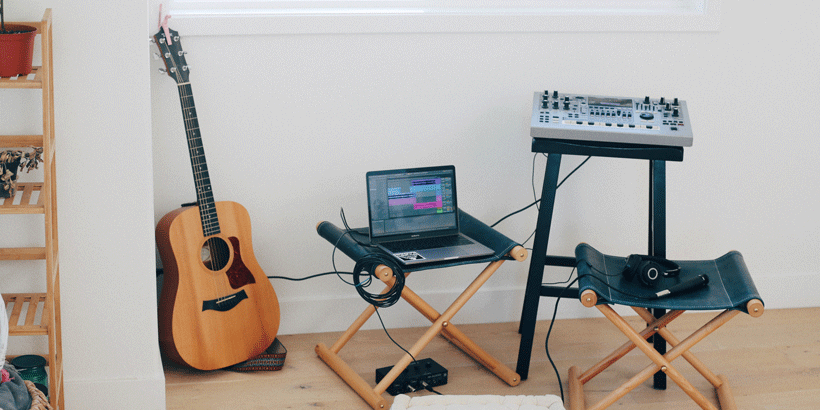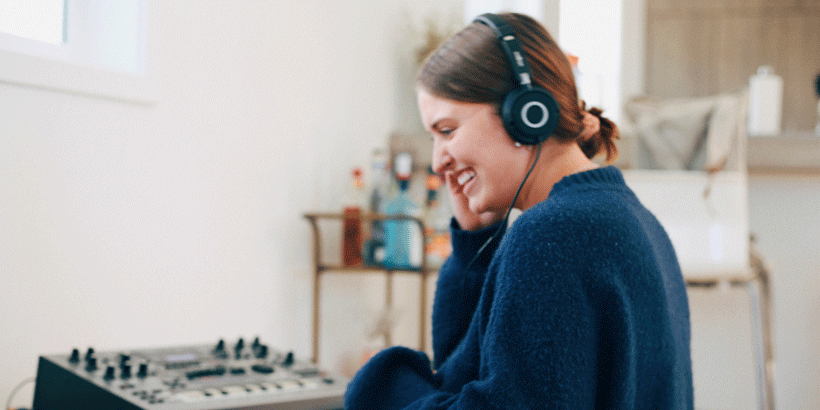Conducting Undergraduate Research: Communication
A student’s college years typically include a wide variety of new experiences in all areas of life. One of the most novel academic opportunities that students have is engaging in undergraduate research. While research has the potential to be an immensely fulfilling and eye-opening experience, it can be daunting to approach a professor or enter the world of academia as an undergraduate student.
Many students might find themselves asking whether undergraduate research is even possible in their major. Research is not only possible in every division, including the field of communication, it is both important and accessible.
Pepperdine’s commitment to exceptional education includes supporting meaningful undergraduate research through internal and external grants and research programs. One of these internal grants is the Academic Year Undergraduate Research Initiative (AYURI), which supports faculty-student research collaborations across all academic divisions. Under the initiative, faculty members receive funding for accepted projects to work with one or more students on research while eligible students receive a scholarship. Students that receive AYURI funding present at the annual Seaver College Research and Scholarly Achievement Symposium.

What kinds of topics can you research?
Throughout the Communication Division, students and faculty explore a wide variety of subjects. This semester Pepperdine’s Academic Year Undergraduate Research Initiative awarded 20 grants to fund unique and diverse research projects. The Communication Division received five of these grants.
Sarah Fischbach, assistant professor of integrated marketing communication, has been working on sustainability perception for the past three years. This past year students Eesha Tripathi and Sofia Lauraya joined her to look at the general population’s perception of single-use plastic and solutions on how organizations can influence employees, customers, and the public to change habits.
Lauren Amaro, associate professor of communication, and students Lyssa Anderson and Bennett Kidder are researching the best way to support parents and caregivers of children with eczema, a common but often distressing skin condition. Amaro previously conducted research that showed high levels of caregiver stress and isolation in this group; in response, she, Anderson, and Kidder are looking at the potential benefits and drawbacks of email support and both one-on-one and group mentorship.
Elizabeth Smith, assistant professor of communication and director of Pepperdine Graphic Media, and Courtenay Stallings, assistant director of Pepperdine Graphic Media, are the advisors of the Graphic, Pepperdine’s student newspaper. They have been working with the students on the Graphic, including Emily Shaw, to take an internal audit of the content published by the newspaper and determine whether the stories told are truly representative of the Pepperdine community.
Student Cameron Davis, with the support of David Madden, assistant professor of screen arts, has been studying the Roland MC-505 Groovebox, a synthesizer and drum machine.
“I am making note of its limitations as well as the strengths and innovation the grooveboxbrings to electronic music production, predominantly through a feminist lens,” Davis shares. “Often female and non-binary artists have blazed the trail for many male artists. In the case of the MC-505, its popularity as a production and performance instrument can be attributed to many female and gender-bending creators using the instrument during the height of the hip hop and post-grunge music eras.”
What is it like to research with a professor?
Each research experience is different, bringing new insight into a student’s academic career, and every faculty-student research relationship is different as well. Many research collaborations grow out of relationships developed in the classroom. Professors may approach students after seeing their work ethic or passion for the topic, or students might take the initiative to reach out to professors if they have an idea for a project or hope to join ongoing work.
Additionally, within each research project, the student-researcher takes on different responsibilities. Some students may focus on data collection or proposal preparation while other students function as the primary researcher with a faculty member’s support. Faculty-student research relationships can also turn into incredible mentorship opportunities.
“I had Dr. Amaro as a professor multiple times, but it was through our research that she really became a mentor,” Anderson shares. “I had never done research before, but she walked me through it and helped me gain such great experience. She’s been an amazing mentor to me.”
Additionally, collaborating with students on research projects can also be beneficial for faculty members.
“The research collaborations between faculty and students enhances everyone’s experience,” Fischbach says. “For the faculty, it allows us to learn new ways to research which is so important.”
Undergraduate research experiences are also an excellent way to build community between the faculty members and students. Shaw stated that because she’s part of the Graphic community and because of the advisor-student relationship, she feels like she’s a part of something bigger than herself. Other students felt similarly, stating how grateful they were to work alongside their faculty mentors.
“My relationship with Dr. Madden is one of exceptional mutual respect, which is really wonderful,” says Davis. “He treats me more like a colleague than a student and always articulates that he is learning alongside me. He has given me a lot of freedom in the research process and has encouraged me to take my own creative liberties with the study.”

Is undergraduate research in Communication valuable?
According to both faculty and students, undergraduate research is undoubtedly worth doing.
“I wish I had explored research earlier in my undergraduate career because it’s been such an amazing opportunity,” says Anderson. “It broadened my skills and opened my eyes to the possibilities of what I could do after graduation.”
Tripathi adds, “Participating in research is incredibly empowering. It gives you the opportunity to use all the knowledge and skills you gain from the classroom and build confidence in applying them to the real world.”
The benefits of undergraduate research expand beyond the students. Research has powerful potential to advance knowledge and improve the local and global community.
Amaro highlighted the impact of Anderson’s participation in their research: “The community piece is so important. Even through such data-driven research, she is impacting her community and making an immediate difference in the lives of caregivers.”
In addition to the act of research, students have the opportunity to gain professional presentation experience through the annual Seaver College Research and Scholarly Achievement Symposium where students present their findings. Some faculty-student research teams also submit their findings to other professional conferences, giving students additional hands-on experience in the research submission and presentation process. For example, Lauraya prepared a proposal for the Association of Consumer Research conference on transformative learning, to apply what the team found to the field of consumer-behavior change.
Regardless of their specific responsibilities or project topic, many students herald their research experience as one of the highlights of their time in college.
“This research project has been the most valuable aspect of my Pepperdine experience. I think original research acts as a catalyst for experience and directional guidance,” Davis shares. “I am leaving Pepperdine with so much concentrated knowledge and I think that any potential employers will see the value in that. It shows dedication and a craving to learn which, in my opinion, plays out positively in every aspect of life.”